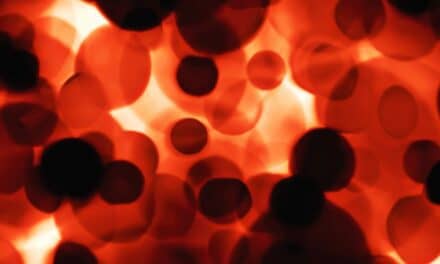Exact Sciences Corp. announced that the performance of its Oncoguard Liver liquid biopsy test is now published online in the peer-reviewed journal Clinical Gastroenterology and Hepatology (CGH). The test delivers 82% early-stage sensitivity, and an overall 88% sensitivity and 87% specificity1 for the detection of hepatocellular carcinoma (HCC), the leading form of liver cancer.
An estimated 3 million2 Americans are eligible for HCC testing. Currently, only one in three3 at-risk patients receive recommended testing.
“The Oncoguard Liver test advances our work to defeat cancer through earlier detection and bring effective, accessible liquid biopsy tests to health care providers and patients,” says Kevin Conroy, chairman and CEO of Exact Sciences. “The clinical validation study published in CGH is the third peer-reviewed publication for our liver test, reflecting Exact Sciences’ commitment to scientific rigor and innovation.”
The newly published clinical validation study details the performance of the Oncoguard Liver test in a group representative of the U.S. population recommended for HCC surveillance. The sensitivity demonstrated by the Oncoguard Liver test highlights the potential for significant advances in early-stage HCC detection. Early-stage detection can increase five-year survival rates for HCC from less than 12%4, 5 to upwards of 70%.6
“We have been working for years to build a simple, high performing blood test for HCC surveillance, and these results indicate that the Oncoguard Liver test is poised to be the major advancement our patients deserve and need,” says Naga Chalasani, MD, interim chair of the Department of Medicine at Indiana University and lead author of the Clinical Gastroenterology and Hepatology-published paper. “The robust validation results were due to a rigorously conducted study, which could not have been possible without diligence and commitment of the entire study team and Exact Sciences’ commitment to developing early cancer detection biomarkers.”
The current standard of care7 for HCC surveillance is visual monitoring via ultrasound, with or without an alpha-fetoprotein (AFP) blood test. These methods have variable sensitivity for detecting early-stage disease.5, 8
The Oncoguard Liver test aims to bridge gaps in ongoing HCC testing. It offers a single, blood-based test analyzing a unique panel of DNA methylation and protein biomarkers. The test is intended as an aid in the detection of HCC for adults with liver cirrhosis and/or chronic hepatitis B who are at risk for HCC.
“The Oncoguard Liver test was created with the hope of enhancing early detection of liver cancer, thus putting improved outcomes within reach and empowering patients to stay current with recommended testing ordered by their health care provider,” says Mayo Clinic’s Lewis Roberts, MB, ChB., PhD, who helped develop the test. “It’s rewarding and exciting to be a part of the team that is bringing this new test to patient care.”
The Oncoguard Liver test is currently available via an early access program designed to familiarize provider offices with the test and its Patient Engagement Program. The test identifies biomarkers associated with HCC. A positive Oncoguard Liver test should be followed with a conventional diagnostic work up.
To learn more visit www.OncoguardLiver.com.
References
1 Chalasani NP, Porter K, Bhattacharya A, Book AJ, Neis BM, Xiong KM, Ramasubramanian TS, Edwards V DK, Chen I, Johnson S, Roberts LR, Kisiel JB, Reddy KR, Singal AG, Olson MC, Bruinsma JJ, Validation of a novel multi-target blood test shows high sensitivity to detect early-stage hepatocellular carcinoma, Clinical Gastroenterology and Hepatology(2021), doi: https:// doi.org/10.1016/j.cgh.2021.08.010.
2 3M U.S. patients calculated using Census Bureau estimates of population and prevalence of cirrhosis as reported in Beste et al., Gastroenterology (2015).
3 Singal AG et al., J Hepatology (2020).
4 National Cancer Institute. Cancer Stat Facts: Liver and Intrahepatic Bile Duct Cancer. 2021. https://seer.cancer.gov/statfacts/html/livibd.html
5 Villanueva A. Hepatocellular Carcinoma. N Engl J Med. 2019;380(15):1450-1462.
6 Tzartzeva K, Obi J, Rich NE, et al. Surveillance imaging and alpha fetoprotein for early detection of hepatocellular carcinoma in patients with cirrhosis: a meta-analysis. Gastroenterology.2018;154(6):1706-1718.e1. doi:10.1053/j.gastro.2018.01.064
7 Marrero JA, Kulik LM, Sirlin CB, et al. Diagnosis, Staging, and Management of Hepatocellular Carcinoma: 2018 Practice Guidance by the American Association for the Study of Liver Diseases. Hepatology. 2018;68(2):723-750
8 Samoylova ML, Mehta N, Roberts JP, Yao FY. Predictors of Ultrasound Failure to Detect Hepatocellular Carcinoma. Liver Transpl. 2018;24(9):1171-1177.




